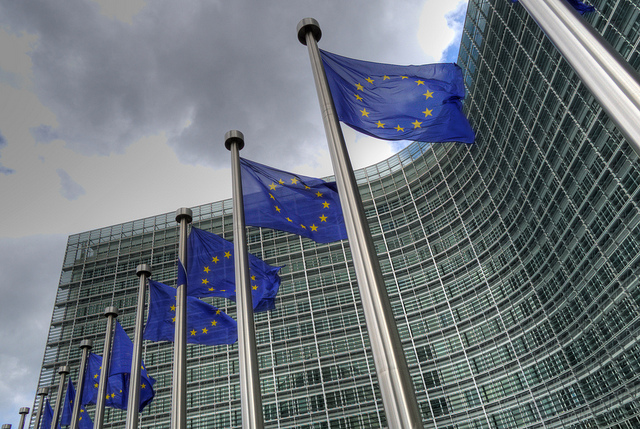Last month’s vote by 18 EU Member States to oppose the European Commission's (EC) proposed two-year (24 month) extension of the anti-dumping (AD) duties against Chinese solar imports into Europe appears to have yielded concession by the EC, with Reuters reporting that the Commission is proposing to cut the extension timeframe to 18 months.
The report is based on a document seen by the news agency, and therefore pv magazine cannot vouch for its accuracy. Reuters states that the document outlines plans to slash the length of the tariff extension by six months in the wake of stiff opposition to the original proposal by a majority of EU Member States.
In January, 18 Member States voiced their opposition to the EC’s proposed AD extension, with five abstaining and only five in favor. This constituted a majority against the plan, and thus triggered an appeal process. The amended proposal is due to be put to the 28 EU Member States tomorrow, February 8.
There were only 14 oppositions to the extension of the anti-subsidy tariff against Chinese solar firms, and thus those duties will continue through to the end of 2018 as originally planned.
The AD duties, however, always represented a more contentious issue for European solar players, and the reported reduction in the extension – and the EC’s apparent claim that this revision represents a final phasing-out period of the controversial duties – will likely be met with cheer by many European-based solar companies, the bulk of which are represented by SolarPower Europe.
Support for the extension of the AD duties has, however, been sustained and consistent, led by Germany’s SolarWorld and the company’s trade lobby group Eu ProSun, which told pv magazine in January that eight EU Member States are home to significant solar manufacturing and thus have been well-served by the extension of the measures against Chinese firms.
“To leave this [solar] technology completely to Chinese companies, which operate state-financed dumping, would be fatal,” said EU ProSun president Milan Nitzschke last month.
Today, an EU ProSun spokesperson told pv magazine that, although reports are currently unconfirmed, the proposal would conflict with the EC’s own analysis and decision-making. “There is a clear 2/3 majority of Member States (weighted by population) that supports the original Commission proposal,” said EU ProSun. “Therefore, a reduction would be completely unfounded. The previous proposal was already a compromise; extensions are usually for five years.”
The spokesperson added that the current AD measures in place have helped to maintain billions of euros of investment in solar in Europe over the past few years. “Since 2013, production has increased, millions has been invested in new technology, and new jobs have been created. This should not be jeopardized by folding against China.”
A number of EU ProSun members were quick to voice their dismay at the rumored proposals. Global BOD Group CEO Vidmantas Janulevicius called the reports “concerning”, adding that any reduction in the AD tariff length will send a “very disturbing signal not only to the European PV industry but the business community as a whole”, while Luc Triangle, General Secretary of IndustriAll said: “Solar energy is a future-oriented sustainable energy source in which Europe must invest. Import of solar panels in conditions that do not guarantee fair trade must be prohibited.”
pv magazine has also contacted SolarPower Europe for further comment on today’s reports.
This is an ongoing story; please check back soon for further updates.
This content is protected by copyright and may not be reused. If you want to cooperate with us and would like to reuse some of our content, please contact: editors@pv-magazine.com.



1 comment
By submitting this form you agree to pv magazine using your data for the purposes of publishing your comment.
Your personal data will only be disclosed or otherwise transmitted to third parties for the purposes of spam filtering or if this is necessary for technical maintenance of the website. Any other transfer to third parties will not take place unless this is justified on the basis of applicable data protection regulations or if pv magazine is legally obliged to do so.
You may revoke this consent at any time with effect for the future, in which case your personal data will be deleted immediately. Otherwise, your data will be deleted if pv magazine has processed your request or the purpose of data storage is fulfilled.
Further information on data privacy can be found in our Data Protection Policy.